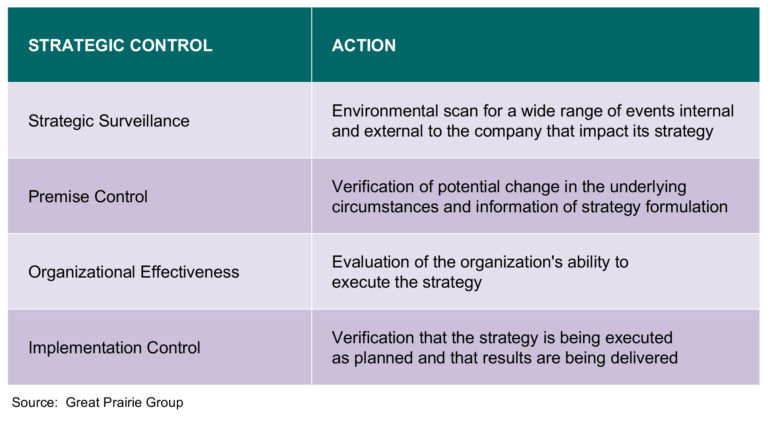The purpose of strategic controls is to track progress toward the fulfillment of the strategy or confirm its continued validity and take corrective action if needed. The objective is to act on time while the strategy execution is taking place, by steering the company toward the intended strategic and operational goals. Where there is strategy or strategy execution, there is the need for strategic control. Without it, a company can be left in the dark about the continued validity of its strategic program or its inability to respond quickly to planning failures. Therefore, its importance cannot be overstated.
CONTROL EFFECTIVENESS
Five questions can help you determine the effectiveness of your company’s strategic controls:
– How are you monitoring the business environment for unexpected threats?
– Are the assumptions rooted in your business strategy still valid?
– Is your organization able to deploy the strategy?
– Is the strategy being executed as planned?
– Are actual results being produced as expected?
Any negative answers signal that your strategy may be off course.
SUGGESTIONS
Even the best-laid plans can go off course. Deviations happen all the time due to the many obstacles that can militate against the strategy and its execution. The ability to steer through obstacles is essential to navigating the situation while executing the strategy. Four types of strategic control are available at key checkpoints in the process.
Types of Strategic Control
They provide mechanisms to track and evaluate planning failures to help managers make adjustments, mid-course corrections or radical changes as needed. It is important that these strategic controls are in place and work effectively for the organization to execute the strategy.


